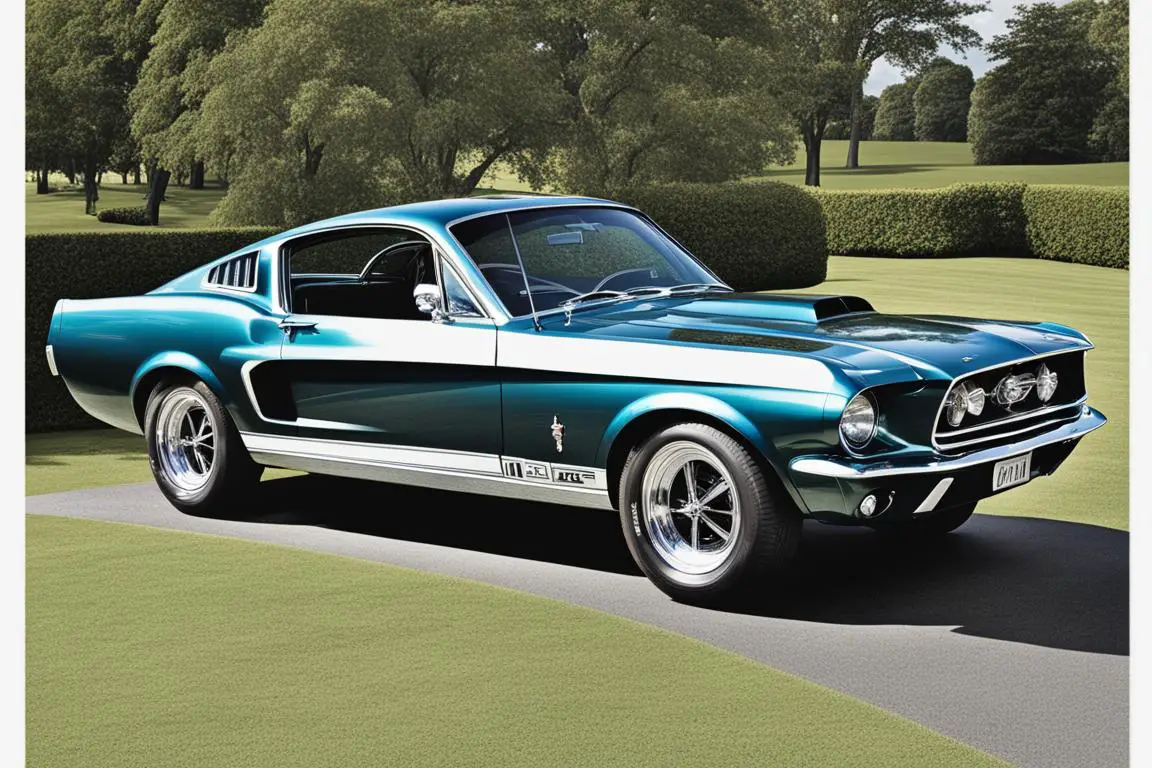Classic cars evoke a blend of nostalgia and style that’s rarely matched by modern vehicles. However, when it comes to considering them as an investment, the conversation shifts from passion to pragmatism. My personal journey into the world of classic car investment began with a dusty 1967 Mustang Fastback purchase, which not only taught me about carburetors and upholstery restoration but also about market trends, investment risks, and potential returns. Let’s delve deep into what makes classic cars tick as potential investments and uncover some less-discussed insights that could guide your decision-making process.
Learn about investing in classic cars
- Classic cars are tangible assets that can potentially increase in value over time.
- Factors like rarity, condition, and demand can influence a classic car’s investment potential.
- Investors can make money from classic cars through appreciation, restoration, or selling to collectors.
What is a classic car?
A classic car is not just defined by its age. The Classic Car Club of America insists that a car must be between 20 and 40 years old to be considered ‘classic’ and over 45 years old to be deemed ‘antique’. However, the emotional and cultural significance, rarity, and condition also play crucial roles. Consider the 1957 Ferrari 250 Testa Rossa, which not only boasts an age over six decades but is also revered for its racing heritage and beautiful design.
Statistics show that certain models of classic cars have appreciated phenomenally over the decades. For instance, a 1971 Plymouth Hemi ‘Cuda sold for approximately $3 million in 2014, a stark contrast to its original selling price in the early ’70s. This appreciation is not just about the car itself but the story it tells and the era it represents.
Are classic cars a good investment?
Opinions are divided here. Financially, classic cars have outperformed many traditional investment assets like stocks and bonds over the last decade. According to the Knight Frank Luxury Investment Index, classic cars saw an average appreciation of 193% over the past 10 years. However, this doesn’t paint the full picture.
Insider Tip: “Always consider the liquidity of classic cars. Unlike stocks, selling a classic car for a good price can take months or even years,” says James Knight, an automotive investment expert.
Classic cars are a high-risk, high-reward market. Their value can be significantly influenced by economic downturns, changing collector tastes, and unpredictable expenses in maintenance. For every story of a million-dollar sale, there are countless others where owners have struggled to break even.
How to invest in classic cars
Investing in classic cars requires more than just purchasing any old vehicle. Here are some focused strategies:
- Research extensively: Understand which car models have a history of appreciating in value. Platforms like Hagertys price guide can offer a wealth of data.
- Network with experts: Join clubs and attend auctions to get insider knowledge and advice.
- Consider partnerships: Some opt for shared ownership to reduce individual financial burden and risk.
During my initial foray into this market, I learned the importance of provenance. A vehicle with a unique history or one that’s been owned by someone famous can significantly increase its value.
How to make money from classic cars
Making money from classic cars isn’t solely about buying low and selling high. Here are some alternative strategies:
- Restoration: Sometimes buying a not-so-perfect car and restoring it can increase its value significantly.
- Renting for events: Classic cars are in high demand for movies, weddings, and photo shoots.
- Driving experiences: Offering driving experiences can also be a lucrative way to capitalize on a classic cars appeal without selling it.

Real-Life Investment Success Story
Sarah’s Journey into Classic Car Investment
Sarah, a passionate car enthusiast, decided to delve into the world of classic car investment after attending a vintage car show with her father. Intrigued by the beauty and history behind these vehicles, she purchased her first classic car, a 1965 Ford Mustang, for $30,000. Over the years, Sarah diligently maintained the car, ensuring it remained in pristine condition.
After a decade of ownership, Sarah decided to sell her beloved Mustang. To her surprise, she was able to sell it for $60,000, doubling her initial investment. Sarah’s success story in the classic car market highlights the potential for significant returns with proper care and attention to detail. It also showcases the emotional attachment that can develop between an investor and their classic car, adding an extra layer of satisfaction to the investment journey.
How to buy a classic car
Buying a classic car is an art as much as it is a science. It’s crucial to:
- Inspect the vehicle thoroughly: Always check for rust, accident damage, and originality of components.
- Seek professional evaluations: A professional appraisal can save you from expensive mistakes.
- Understand the maintenance costs: Classic cars can be notoriously expensive to maintain properly.
When I bought my first classic car, I overlooked the importance of spare parts availability. It turned out that finding parts for a 1960s Mustang was not only a challenge but also a significant expense.
How to sell a classic car
Selling a classic car requires understanding your market and the unique selling points of your vehicle:
- Market effectively: Utilize online platforms, classic car forums, and auctions to reach potential buyers.
- Set a realistic price: Use appraisal tools and compare similar models to set a competitive price.
- Prepare the car: Presentation can dramatically affect the sale, so invest in professional detailing.
How to store a classic car
Proper storage is vital to maintaining a classic cars condition:
- Control the environment: Store in a temperature-controlled, dry place to prevent rust and decay.
- Use a car cover: Even indoors, a cover can protect against dust and scratches.
- Maintain fluids: Regularly change oils and other fluids to keep the car in running condition, even if its not driven often.
How to maintain a classic car
Maintenance goes beyond regular servicing. For classic cars, it’s about preservation:
- Use specialist services: Regular mechanics might not have the expertise needed for older engines.
- Attend to the details: Small issues like a slight oil leak can become major problems if ignored.
How to insure a classic car
Insurance for classic cars differs significantly from standard auto insurance:
- Seek specialized insurers: Companies that specialize in classic cars often offer better terms and understand the cars true value.
- Agree on a value: Ensure the insurance policy reflects an agreed value rather than actual cash value to avoid underinsurance issues.
How to get a classic car valued
Valuation is crucial both for selling and insuring your classic car:
- Use professional appraisers: Their detailed reports can justify your asking price and ensure proper insurance coverage.
- Keep records: Documentation of restoration, maintenance, and provenance can significantly impact a cars valuation.
In conclusion, investing in classic cars can be rewarding both financially and personally. However, it demands a depth of knowledge, a commitment to maintenance, and a passion for what many consider moving pieces of art. Whether its the thrill of the auction, the joy of a restoration project, or the pride of ownership, classic cars offer an experience that typical investments simply cannot match.
Questions & Answers
Who benefits from investing in classic cars?
Collectors and enthusiasts can benefit from investing in classic cars.
What makes classic cars a good investment?
Classic cars often appreciate in value over time, making them a lucrative investment option.
How can one start investing in classic cars?
Research the market, attend auctions, and consult with experts to start investing in classic cars.
Are classic cars a risky investment?
While any investment carries risks, classic cars can provide a tangible asset that may increase in value over time.
What factors should one consider before investing in classic cars?
Consider the rarity, condition, historical significance, and market demand of classic cars before investing.
What if I don’t have a large budget for classic car investment?
Start small by investing in more affordable classic cars or consider joining a classic car investment group to pool resources.

